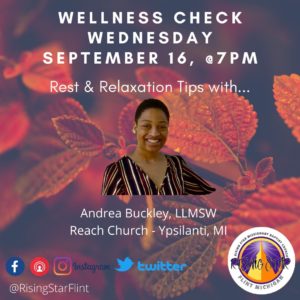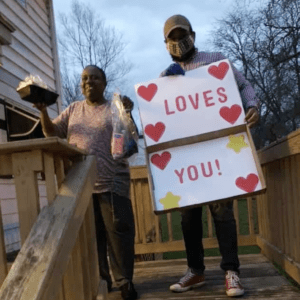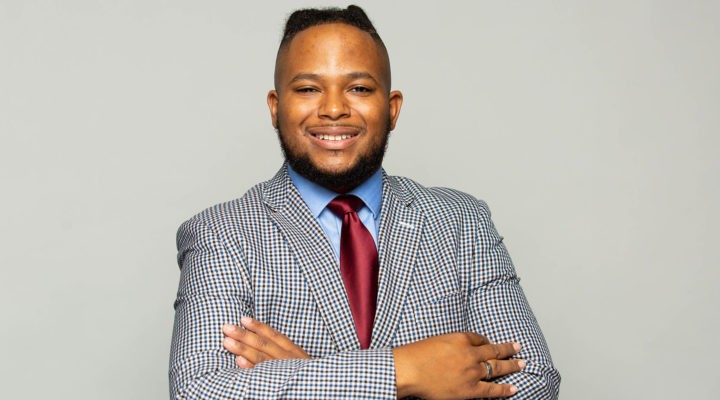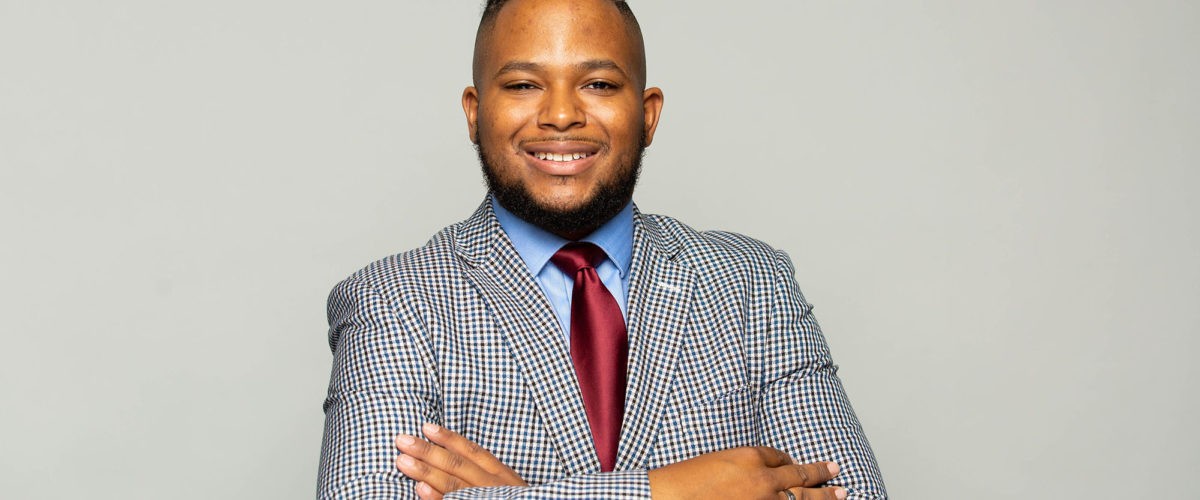DeVontae Powell could see last summer that he and his Baptist congregation in Flint, Mich., would have to take mental health seriously if they were to get through the challenges of the COVID-19 pandemic and two human-generated disasters afflicting the city.
So in June 2020, a month after being called as lead pastor at Rising Star Missionary Baptist Church, Powell launched Wellness Check Wednesdays. The virtual program introduced therapists, counselors and educators to a predominantly Black congregation struggling to cope with pandemic-induced isolation on top of Flint’s notorious water crisis and escalating gun-violence emergency.
Powell said his longstanding practice of clergy self-care was helping him cope with the rapid changes brought on by the coronavirus outbreak, but he knew that wasn’t enough.
“I cannot preach from a good place without doing what I need to for my mental health, but I also don’t want to be a healthy pastor pastoring an unhealthy church,” he said of the congregation that partners with the Cooperative Baptist Fellowship.
 Wellness Check Wednesdays will resume in September because the program had a positive impact on church members and others who attended the online sessions in 2020, Powell said.
Wellness Check Wednesdays will resume in September because the program had a positive impact on church members and others who attended the online sessions in 2020, Powell said.
One of its major successes was in alerting participants that enduring years of consuming lead-contaminated water and watching shooting deaths skyrocket, especially among youth, had inflicted unrecognized psychological injuries that were being exacerbated by the pandemic, Powell said.
“A lot of the feedback I received was, ‘Wow, we had gotten so used to existing with these wounds that we didn’t realize that healing was available to us, that we even needed to heal or that we even had these wounds,’” he said. “The program took those scales off of people’s eyes to help them see they were really hurting and they don’t have to live this way anymore.”
Powell said he learned the importance of emotional self-care from personal experience. The process began with counseling after being sexually abused as a child and continued at a church he served before Rising Star as connections and college minister. “My pastor there made sure that I continued to invest in my self-care and my mental health.”
His current routine includes weekly therapy, meeting with fellow pastors and participating in the Academy of Preachers, which offers a support system for young ministers, said Powell, 26. “And I take time to myself — I’m real intentional about that. It’s just DeVontae and God.”
It took the new pastor only a few weeks in the spring of 2020 to sense that something was amiss with his congregation.
“They had been managing trauma after trauma for so long that it was like their trauma had become louder than their trust in their Savior.”
“Sunday mornings in an African-American context are usually celebratory, but I noticed that my church had a hard time with the traditional celebration. It wasn’t that they weren’t grateful to God or that they were disconnected from their faith, it was simply that they were in a mental crisis,” he said. “They had been managing trauma after trauma for so long that it was like their trauma had become louder than their trust in their Savior.”
The pandemic added to the stress of gun violence and unhealthy drinking water by adding physical isolation and a learning curve around virtual technology, which was new to many of them, Powell said. “There was just a lot of mental fatigue and mental trauma, and the isolation was especially difficult for a lot of our older members.”
 Wellness Check Wednesdays sliced through the darkness by helping identify and address personal and communal grief and helping restore a sense of wholeness and togetherness, in part through home visits that included pastoral care and fellowship, he explained.
Wellness Check Wednesdays sliced through the darkness by helping identify and address personal and communal grief and helping restore a sense of wholeness and togetherness, in part through home visits that included pastoral care and fellowship, he explained.
“It was something they really needed while they were trying to learn Facebook and how to log onto Zoom and wracking their brains with all that, when they were used to getting a hug on Sundays instead of viewing their pastor and worship team through screens.”
While the 2020 program replaced all other Wednesday night programming, Wellness Check Wednesdays this year will be held in conjunction with faith group meetings at Rising Star Baptist. Powell said one of the lessons he hopes his membership takes from the experience is learning that faith can be as much about mental health as spiritual health.
“Christ is not only there to save us, but also to lead us through our trauma. I want them to see that Christ can meet them there and lead them through their burdens.”
Related articles:
Churches adapted rapidly to the pandemic, but there’s a mental health cost to that success
Clergy mental health is a choice between life and death | Opinion by Jakob Topper
Study links daily spiritual practices to improved well-being and mental health


